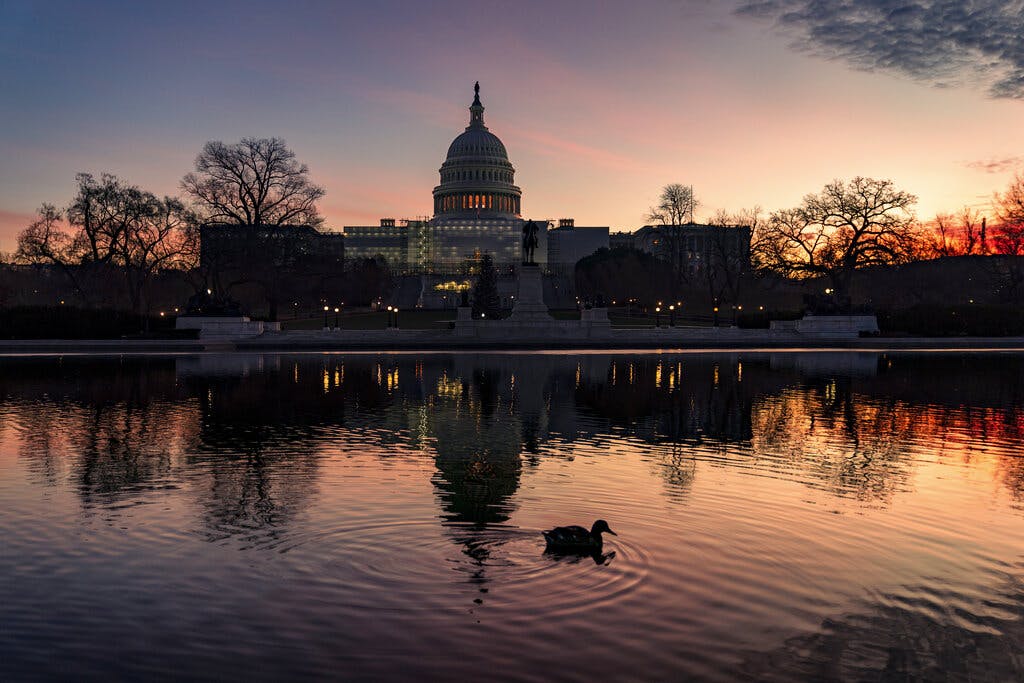$1.7 Trillion Bill Has Zilch for Our Most Loyal Afghan Allies
This is a slap in the face to the Green Beret who runs a nonprofit to help Afghan counter-IED specialists immigrate to the United States.

While the 4,155-page, $1.7 trillion omnibus bill to fund the federal government through fiscal year 2023 is full of earmarks and lavish spending on congressional pet causes, one notable group won’t benefit from the largesse: America’s Afghan allies.
These are the Afghans who aided America’s Armed Forces during the military conflict there against the Taliban, often at risk of their own lives. Lawmakers dropped from the omnibus bill the Afghan Adjustment Act, which would have provided a pathway to permanent U.S. residency for thousands of Afghans who fled their country in the wake of America’s withdrawal.
Former military leaders lobbied Congress for the act’s inclusion in the omnibus bill, but Senator Grassley opposed the measure over concerns regarding vetting. The bill does increase the number of visas by 4,000.
To Thomas Kasza, a Green Beret who runs a nonprofit to help Afghan counter-IED specialists who worked alongside Special Forces immigrate to the United States, this is a slap in the face.
“Not only is it a gross betrayal of our obligations towards those who sacrificed so much in advancing our national interests, it’s an explicit abdication of American moral values,” Mr. Kasza tells the Sun. “It will be servicemembers, veterans, and volunteers who will be forced yet again to pick up the slack in lieu of our elected leaders”
Mr. Kasza says many of the Afghans he worked with are now in hiding, as the Taliban hunts down those who aided American Special Forces. For those he’s already helped immigrate to the United States, the Afghan Adjustment Act would provide long-term stability.
America’s Afghan allies aren’t the only ones left out of the omnibus bill. Also omitted is a Democrat-led measure to expand the child tax credit and a bipartisan cannabis banking bill, the SAFE Banking Act.
The text of the spending bill was released early Tuesday morning, giving Congress members just three days to read the package before they are scheduled to vote on it to avoid a government shutdown.
Funding for the federal government is set to expire at midnight on Friday. The spending bill includes $772.5 billion for “non-defense discretionary programs” and $858 billion for defense funding, according to the Senate Appropriations Committee.
It includes $44.9 billion in emergency assistance to Ukraine and NATO allies and $40.6 billion for emergency assistance for natural disasters on American soil. The bill also includes measures unrelated to spending, such as a ban of the TikTok app on government-issued devices and the Electoral Count Act to clarify the vice president’s clerical and ceremonial role in counting electors.
Both sides of the aisle are claiming victories, with Republicans saying they pushed back against defense spending cuts and Democrats touting their domestic agenda.
The bill is filled with earmarks, political pet projects, and the renaming of buildings and programs after the politicians tasked with its passage.
The bill calls for a federal building in San Francisco to be renamed after Speaker Pelosi. It also would rename a FBI facility in Alabama the Richard Shelby Center for Innovation and Advanced Training, after the Republican vice chairman of the Senate Appropriations Committee.
Senator Leahy paints a rosy picture of the compromise spending package. “The pain of inflation on American families is real, and it is being felt right now across the federal government,” he said. “Our bipartisan, bicameral, omnibus appropriations bill directly invests in providing relief from the burden of inflation on the American people.”
Many economists and conservative critics disagree, saying that increased government spending is what led to our current 7 percent inflation rate.
“This monstrous spending bill comes to 4,155 pages,” Senator Lee tweeted. “We deserve proper consideration and the chance to read, debate and amend — not a backroom deal. Opposing this isn’t radical: running our government like this is what’s radical.”
Such 11th-hour spending bills are becoming the norm, along with the rush to passage to avert government shutdowns. The process is reminiscent of Mrs. Pelosi’s 2010 comment during the debate over the Affordable Care Act: “We have to pass the bill so that you can find out what is in it.”
We’ll see over the next three days whether enough Republican senators are willing to do just that.

